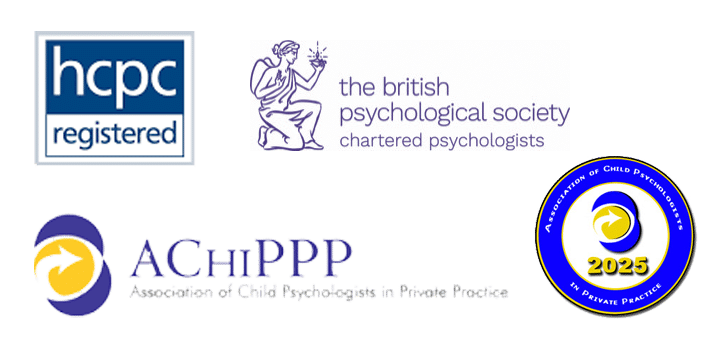Dyslexia is a ‘hot’ topic which is why you may experience some Local Authorities willing to give a diagnosis if reading and spelling difficulties are formally recognised and considered ‘unexpected’ within the context of the child’s educational experience, whilst other Local Authorities will not give a diagnosis. This is because there is no universally agreed definition.
The reason for this is that dyslexia lacks the science to support it as a specific difficulty with its own specific set of underlying reasons and symptoms, beyond the difficulty with word reading and spelling. There is a growing awareness of its multifactorial and heterogeneous nature.
This is summed up in the following quote:
‘There is currently no consistent basis – biological, cognitive behavioural or academic – for distinguishing those who might be identified as dyslexic from others experiencing difficulty learning to decode words…..Determining whether or not someone is dyslexic amounts to deciding where on the normal distribution to draw the line… There is no agreement about where to draw the line(s), and there is no evidence that instructional response should be different for those above or below the line(s).’ (Johnston and Scanlon 2021: 70-71 from Dyslexia Debate Revisited 2024 – Elliot and Grigerenko, p58).
However, it is abundantly clear that some individuals struggle to read and spell, despite good teaching, and whether they have strong cognitive abilities or not, so a specific learning difficulty relating to reading and spelling does exist.
The term Dyslexia is big business and a term that is in the public domain. Consequently it has become a common and acceptable term to use to describe specific difficulties, and it can hold power. However as there is no specific agreed definition, the precise understanding of the construct can vary from person to person, and this can cause confusion.
Whilst I consider it important to engage and understand the ongoing debate, helped significantly by my own experience as a specialist dyslexia teacher early on in my teaching career, prior to becoming an educational psychologist, my mission in an assessment that will cover literacy and dyslexia, is pragmatic. It aims to understand how the individual reads and spells, and about the skills that they have or lack, in so doing (phonological/orthographic).
The assessment may ascertain possibly milder reading and spelling difficulties that impact less on word reading and spelling accuracy but more on reading speed and comprehension.
From a holistic understanding of the individual’s literacy skills, within the context of understanding the individual’s learning strengths, weaknesses, health, motivation and environment, a bespoke and evidence based intervention programme can be recommended.
Diagnosis or not – that is the question?
I diagnose dyslexia and use the label dyslexia but see this as a label that is synonymous with reading and spelling difficulties. My assessment will ascertain the degree of difficulty with these skills, with an underpinning hypothesis as to why there is such a difficulty based on the assessment findings.
Definitions:
SASC (SpLD Assessment Standards Committee) have participated with a Delphi Study to produce the following guidelines with regards to dyslexia (May 2024). I have copied these below and whilst deeply respectful of the work that has gone into developing these guidelines and the specific descriptions, consider that the variance of the symptoms listed below exposes the ‘blurry’ concept of dyslexia:
· Dyslexia is primarily a set of processing difficulties that affect the acquisition of reading and spelling.
· In dyslexia, some or all aspects of literacy attainment are weak in relation to age, standard teaching and instruction, and level of other attainments.
· Across languages and age groups, difficulties in reading and spelling fluency are a key marker of dyslexia.
· The nature and developmental trajectory of dyslexia depends on multiple genetic and environmental influences.
· Dyslexic difficulties exist on a continuum and can be experienced to various degrees of severity.
· Dyslexia can affect the acquisition of other skills, such as mathematics, reading comprehension or learning another language.
· The most commonly observed cognitive impairment in dyslexia is a difficulty in phonological processing (i.e. in phonological awareness, phonemic decoding skill or phonological memory). However, phonological difficulties do not fully explain the variability that is observed.
· Working memory, orthographic skills and processing speed problems can contribute to the impact of dyslexia and therefore should be assessed.
· Dyslexia frequently co-occurs with one or more other developmental difficulty, including developmental language disorder, dyscalculia, ADHD, and developmental coordination disorder.
Elliot and Grigorenko, whilst ideally maintaining their view from their book, The Dyslexia Debate, 2013 that the term ‘dyslexia’ be discontinued as it is unhelpful, appreciate that this is not realistic in mind of the loud Dyslexia advocate voice that continues to influence policy and practice (see page 287, The Dyslexia Debate Revisited). They therefore recommend the following which I think gives greater clarity and certainly adheres to the extensive evidence that they reference in their book, (‘The Dyslexia Debate Revisited’ – Cambridge University Press, 2024, p290):
1. Dyslexia should be used solely to reference a severe and persistent difficulty in accurate and fluent word reading in the individual’s first language.
2. The use of dyslexia as a term synonymous with a medical diagnosis with symptoms and an underlying cause, should be discontinued.
3. It should no longer be considered appropriate to divide struggling readers into diagnosable dyslexia and non-dyslexic categories.
4. It should be recognized that some reading difficulties are primarily a consequence of intellectual disability and severe sensory impairment (i.e. hearing and vision). Such difficulties are likely to require modified approaches to the teaching of reading.
5. The assessment of reading difficulties should focus primarily upon relevant literacy skills and how these can be best enhanced.
6. Given the probabilities, multifactorial nature of reading difficulty, the use of the term dyslexia should carry no assumptions as to etiology in respect of any individual reader.
7. Co-occurring comorbidities should be acknowledged, where appropriate, but these should not be seen as indicative of an underlying dyslexic condition.
8. The expanded understanding of the dyslexia construct, spreading beyond reading disability, should be discontinued.
9. Where required by national or regional education systems, formal labelling of difficulty in academic areas should employ broad classificatory terms such as learning disability or specific learning disability. This should specify the particular areas of difficulty encountered by the individual (accurate and fluent word reading, reading comprehension, spelling, maths, etc.).
10. Professional training of educators should focus upon the prevention of, recognition of, and intervention for, literacy difficulties (including problems of word recognition/decoding).
11. The notion that those hitherto diagnosed as dyslexic require a different instructional approach to that appropriate for other struggling reading should be actively dispelled.
Dyslexia and Exam Arrangements: I should also add that a dyslexia diagnosis does not automatically make the individual eligible for specific exam arrangements such as extra time. This is awarded by clearly defined criteria outlined in the annual JCQ regulations. Ref: https://www.jcq.org.uk/exams-office/access-arrangements-and-special-consideration/
However, the educational psychology assessment would establish any exam arrangements that the individual may be eligible to be considered for e.g. a reader, extra time, but in mind that it is the school that makes the application based on their supporting evidence from an educational psychology or other assessment, and their school evidence.
July 2024 – Caro Strover
Refs:
SASC Briefing paper on Dyslexia – May 2024
https://sasc.org.uk/media/3imfgx54/sasc-briefing-paper-delphi-dyslexia-study-may-2024-final.pdf
The Dyslexia Debate Revisited
Julian G Elliot and Elena L Grigorenko, The Dyslexia Debate Revisited, Cambridge University Press 2024
The Dyslexia Debate
J G Elliot and E L Grigorenko, The Dyslexia Debate Revisited, Cambridge University Press 2013






